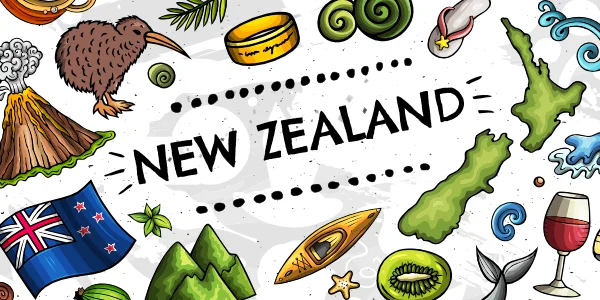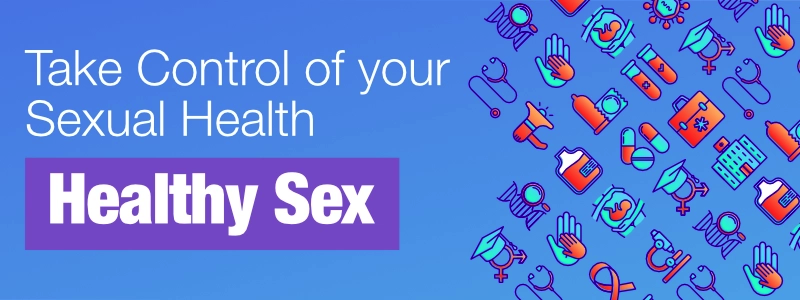
Welcome to New Zealand
Moving to New Zealand with HIV?
We've got you covered!
Moving to New Zealand with HIV?
We've got you covered!
Living with HIV shouldn't stop you from pursuing your dream of living in New Zealand. This page is your one-stop shop for navigating life here with HIV.
We understand you might have questions:
We understand you might have questions:
- How do I access top-notch healthcare?
- What are the local regulations?
- Where can I find support groups and resources?
Relax, we've got answers!
Our comprehensive guide below covers everything from healthcare access to local regulations and finding a supportive community. Explore our resources and feel empowered to make informed decisions about your health and well-being in New Zealand.

Local Regulations
of
Local Regulations
Are there any travel or activity restrictions for individuals with HIV?
There are generally no specific travel or activity restrictions for individuals with HIV in New Zealand. The country does not have entry restrictions based on HIV status, and people living with HIV are not barred from participating in various activities.
Can I work or study in New Zealand if I have HIV?
Yes, you can work or study in New Zealand if you have HIV. The country has laws against discrimination based on health status, including HIV, in both employment and education.
Will my HIV positive status affect my application for a New Zealand visa from Immigration New Zealand?
You may need to get a medical examination as part of your Immigration application. This is used to determine if you meet the acceptable standard of health criteria. This will include HIV as part of your overall health assessment. Being HIV positive is not considered a reason to be denied access.
HIV Medication and Healthcare
of
HIV Medication and Healthcare
What is the New Zealand funded healthcare system? Am I eligible for funded healthcare?
New Zealand has a high-quality taxpayer funded healthcare system, therefore most health services are free. Depending on the type and duration of your visa you may be eligible for New Zealand's public healthcare system.
Even if you are not eligible for funded healthcare, regardless of your visa or residency, all HIV treatment and care is funded and free. This includes the appointments with your HIV Specialist, blood tests, HIV medications, prescriptions and other HIV related medical services. Please note that HIV related services are only available through the Public Hospital System via the Infectious Diseases (ID) Departments or Sexual Health Clinics.
What HIV related healthcare services are available in New Zealand?
In New Zealand, individuals living with HIV have access to comprehensive HIV healthcare services for free.
This includes:
This includes:
- Specialised HIV clinics and healthcare, Antiretroviral therapy, Regular medical monitoring and follow-up
- Sexual health services including testing and treatment for sexually transmitted infections (STIs)
- Support services including counselling, mental health support, peer support etc.
- Community organisations for information, advocacy and support etc.
Am I able to bring my HIV medications into New Zealand, and is there a quantity limit?
Yes, you can bring a 3 months’ supply of medication for personal use and this includes your HIV Medicines. According to Customs Service of New Zealand, if you're bringing prescription medicines to New Zealand, follow these rules:
- Have a copy of the prescription or a letter from your doctor confirming your treatment
- Keep the medicines in their original containers
- Ensure the quantity doesn't exceed a three-month supply
As an HIV-positive person, how much does it cost for HIV medications and other HIV related services in New Zealand?
All blood tests, other medical services and prescriptions directly related to HIV Care, are provided free of charge through the Public Hospital System via Infectious Diseases Departments or Sexual Health Clinics to everybody. General Practitioners (GP's) in New Zealand are not authorised to prescribe HIV Antiretroviral Medication.
Where can I find the Infectious Diseases Departments or Sexual Health Clinics in NZ? How can I contact them?
Treatment related to HIV in NZ is only provided through the Infectious Diseases departments at Public Hospitals or through Sexual Health Clinics in each region.
To contact your local Infectious Diseases Department or Sexual Health Clinic, a referral needs to be made by a General Practitioner (GP), Body Positive or any other HIV Support Organisation. In some areas, the Infectious Diseases Department or Sexual Health Clinic can be contacted directly.
What HIV medications are available in New Zealand? Do I need to change my HIV medications when arrive in New Zealand?
Not all HIV treatment regimens are available in NZ.
Most HIV medications are funded by the government through Pharmac, free for both residents and non-residents. HIV Medications can be obtained from any pharmacy (but they may need 24 hours to get it in stock). If your medication is not Pharmac funded, arrangements can sometimes be made, but additional costs may apply. You may be able to purchase unfunded medicines in New Zealand or import another 3 months' supply. Make sure to talk to the HIV Specialist at your local Infectious Diseases Department or Sexual Health Clinic about the availability of your specific HIV medications.
What do I need to do when I'm moving from one city to another city in New Zealand if I'm living with HIV?
It’s important to maintain consistent medical care and treatment if you move from one city to another. Make sure to transfer your medical records to the new location if you are moving and get a referral. Your HIV Specialist will usually do the paper work and transfer this to the available clinic/hospital where you will reside.
Support Services
of
Support Services
Are there support groups or community organisations for individuals affected by HIV and STIs in New Zealand?
Yes, organisations including Body Positive, Burnett Foundation, and Sexual Health Clinics etc. focus on advocacy, education, and support services for individuals affected by HIV and STIs.
How can I access counselling or mental health support as a person living with HIV in New Zealand?
Seeking support is a sign of strength, and there are professionals and organisations ready to assist you. If you are in crisis or need urgent help, don't hesitate to contact emergency services or visit your nearest emergency department.
There are several organisations and avenues you can explore if you are seeking counselling or mental health support.
Disclosure
of
Disclosure
Do I need to disclose my HIV status in New Zealand?
It's your right to choose whether to tell someone (or ‘disclose’) that you have HIV. However, there are some situations where you are legally required to share your status.
Sexual relationships: In New Zealand, you do not have to tell a sexual partner that you have HIV, as long as you take appropriate precautions to prevent sexually transmitting HIV. Using a condom is considered 'appropriate precautions', while undetectable viral load and PrEP are not recognised as reasonable precautions.
Employment/Study: Under the Human Rights Act 1993, in New Zealand it is illegal to discriminate against anyone living with HIV. In most cases, it is completely your choice whether or not to tell your employer you have HIV.
Receiving Healthcare: There is no legal requirement for you to disclose your HIV status before undergoing any type of medical examination or treatment unless it is relevant to your medical condition and treatment.
When entering NZ: You don't need to reveal your HIV status when entering New Zealand from overseas. However, you might be asked about any prescribed medications, including your HIV ones, upon arrival. Having a copy of your prescription and a letter from your doctor explaining the medications are for your personal use - it doesn’t need to specify HIV.
Employment/Study: Under the Human Rights Act 1993, in New Zealand it is illegal to discriminate against anyone living with HIV. In most cases, it is completely your choice whether or not to tell your employer you have HIV.
Receiving Healthcare: There is no legal requirement for you to disclose your HIV status before undergoing any type of medical examination or treatment unless it is relevant to your medical condition and treatment.
When entering NZ: You don't need to reveal your HIV status when entering New Zealand from overseas. However, you might be asked about any prescribed medications, including your HIV ones, upon arrival. Having a copy of your prescription and a letter from your doctor explaining the medications are for your personal use - it doesn’t need to specify HIV.
HIV Testing and PrEP
of
HIV Testing and PrEP
Where can I have an HIV and other sexual health (STI) tests in New Zealand? How much do the tests cost?
In New Zealand, you have several options to get HIV and Sexual Health tests, including your family doctor or general practitioner (GP), community organisations such as Body Positive and Burnett Foundation, Sexual Health Services (SHS) and Family Planning.
The testing costs depend on factors such as where you go for testing, your immigration status, eligibility for funded healthcare, gender identity, sexuality and age etc.
The testing costs depend on factors such as where you go for testing, your immigration status, eligibility for funded healthcare, gender identity, sexuality and age etc.
Is HIV and STIs testing confidential? Will my test results be made known to my family, employer or Immigration New Zealand?
In New Zealand, HIV and STIs testing is confidential. All healthcare providers and clinics are bound by strict privacy laws and ethical guidelines to protect the confidentiality of patients' health information. Testing provided through a rapid test or self-test will not be recorded in the health system.
Immigration New Zealand does not have access to your individual health information unless you provide explicit consent. However, HIV tests are included as part of an immigration medical.
Immigration New Zealand does not have access to your individual health information unless you provide explicit consent. However, HIV tests are included as part of an immigration medical.
Is PrEP (Pre-Exposure Prophylaxis) available in New Zealand? How much does PrEP cost? How can I get PrEP?
PrEP (Pre-Exposure Prophylaxis) is available in New Zealand. The funded medicine for PrEP in New Zealand is tenofovir disoproxil fumarate with emtricitabine (brand name Truvada).
If you are relocating from overseas and already on PrEP, we recommended bringing 3 months’ supply when coming to New Zealand.
To obtain PrEP in New Zealand, you need to consult a general practitioner (GP) or local Sexual Health Clinic. Before prescribing PrEP, they will conduct a series of lab tests to ensure PrEP is safe and appropriate for you, including HIV, STI and other tests. The tests and clinic visits could be expensive depending on the clinic if you are not eligible for funded health care.
Your PrEP prescription will either be sent to you or obtained from the pharmacist of your choice. If you are eligible for funded healthcare, PrEP is free. To purchase it unsubsidised, the cost is around $25 for 30 pills.
If you are relocating from overseas and already on PrEP, we recommended bringing 3 months’ supply when coming to New Zealand.
To obtain PrEP in New Zealand, you need to consult a general practitioner (GP) or local Sexual Health Clinic. Before prescribing PrEP, they will conduct a series of lab tests to ensure PrEP is safe and appropriate for you, including HIV, STI and other tests. The tests and clinic visits could be expensive depending on the clinic if you are not eligible for funded health care.
Your PrEP prescription will either be sent to you or obtained from the pharmacist of your choice. If you are eligible for funded healthcare, PrEP is free. To purchase it unsubsidised, the cost is around $25 for 30 pills.
Before you go
It’s wise to make a phone call or check their website before scheduling your HIV and STI testing to ensure the service information is accurate, up to date and appropriate. Check the testing services, eligibility requirements, understand associated fees, and ensure privacy measures are in place.
Types of Testing Services
Identify the specific testing services you need, whether it's a full STI screen, an HIV test or a particular STI test such as Syphilis, Gonorrhoea, Chlamydia, Hepatitis A, Hepatitis B, Hepatitis C, Genital Herpes, HPV etc. Explore different testing methods and options available for each such as rapid tests, blood tests, urine tests, swab tests, self-tests (mailed or in-person) and specimen collection centres.
Other considerations includes:
Other considerations includes:
- Do you have symptoms of HIV or STIs? (If so, better to see your GP, Sexual Health Clinic, or other clinics)
- How long before you get the results and what happens after – do they provide treatment? Do they offer vaccines for preventions?
Accessibility
Consider the accessibility of testing services, including location, hours of operation, waiting periods and appointment availability.
Testing location/venue options includes self-testing at home, testing at sex venues, emergency and non-emergency healthcare settings (Hospital, Sexual Health Clinic, GP, school nurse and others), other organisations such as Body Positive, Burnett Foundation etc.
The availability for the appointment depends on the testing venues policy and may require booking an appointment in advance, some venues may offer drop-in services.
Testing location/venue options includes self-testing at home, testing at sex venues, emergency and non-emergency healthcare settings (Hospital, Sexual Health Clinic, GP, school nurse and others), other organisations such as Body Positive, Burnett Foundation etc.
The availability for the appointment depends on the testing venues policy and may require booking an appointment in advance, some venues may offer drop-in services.
Testing Cost
Be aware of associated costs, including appointment fees, testing fees, laboratory charges and additional fees such as follow-up testing and treatment cost.
Eligibility
Residency or Visa Status
Testing services and costs may differ based on your residency or visa status. Enquire about any specific requirements. If you are not eligible for New Zealand funded healthcare services, insurance may cover some of the costs.
MSM or Heterosexuals
Men who have sex with men (MSM) have higher rates of HIV and STIs, leading to specialised testing services being available at some organisations or clinics.
Age-related Policies
Different testing centres may have age-related policies, such as offering free testing for specific age groups. For instance, some may provide free testing for residents under 22 years old, while others extend this to individuals under 30, regardless of residency status.
Other considerations
Some testing centres specialise in services for specific communities, such as:
Testing services and costs may differ based on your residency or visa status. Enquire about any specific requirements. If you are not eligible for New Zealand funded healthcare services, insurance may cover some of the costs.
MSM or Heterosexuals
Men who have sex with men (MSM) have higher rates of HIV and STIs, leading to specialised testing services being available at some organisations or clinics.
Age-related Policies
Different testing centres may have age-related policies, such as offering free testing for specific age groups. For instance, some may provide free testing for residents under 22 years old, while others extend this to individuals under 30, regardless of residency status.
Other considerations
Some testing centres specialise in services for specific communities, such as:
- Ethnicities (Maori/Pasifika)
- Genders (transgender, non-binary individuals)
- Persons Who Inject Drugs (PWID)
- Sex workers
- Community Services Card (CSC) holders
- People living with HIV (PLWHIV)
Find your local testing clinic:
Join Body Positive
By becoming a member you will be able to access all the services we offer, as well as support and updates to help you live better.
Newsletter
Want to be keep up with whats happening at Body Positive?
Subscribe to our newsletter below by submitting your e-mail address.
Subscribe to our newsletter below by submitting your e-mail address.




